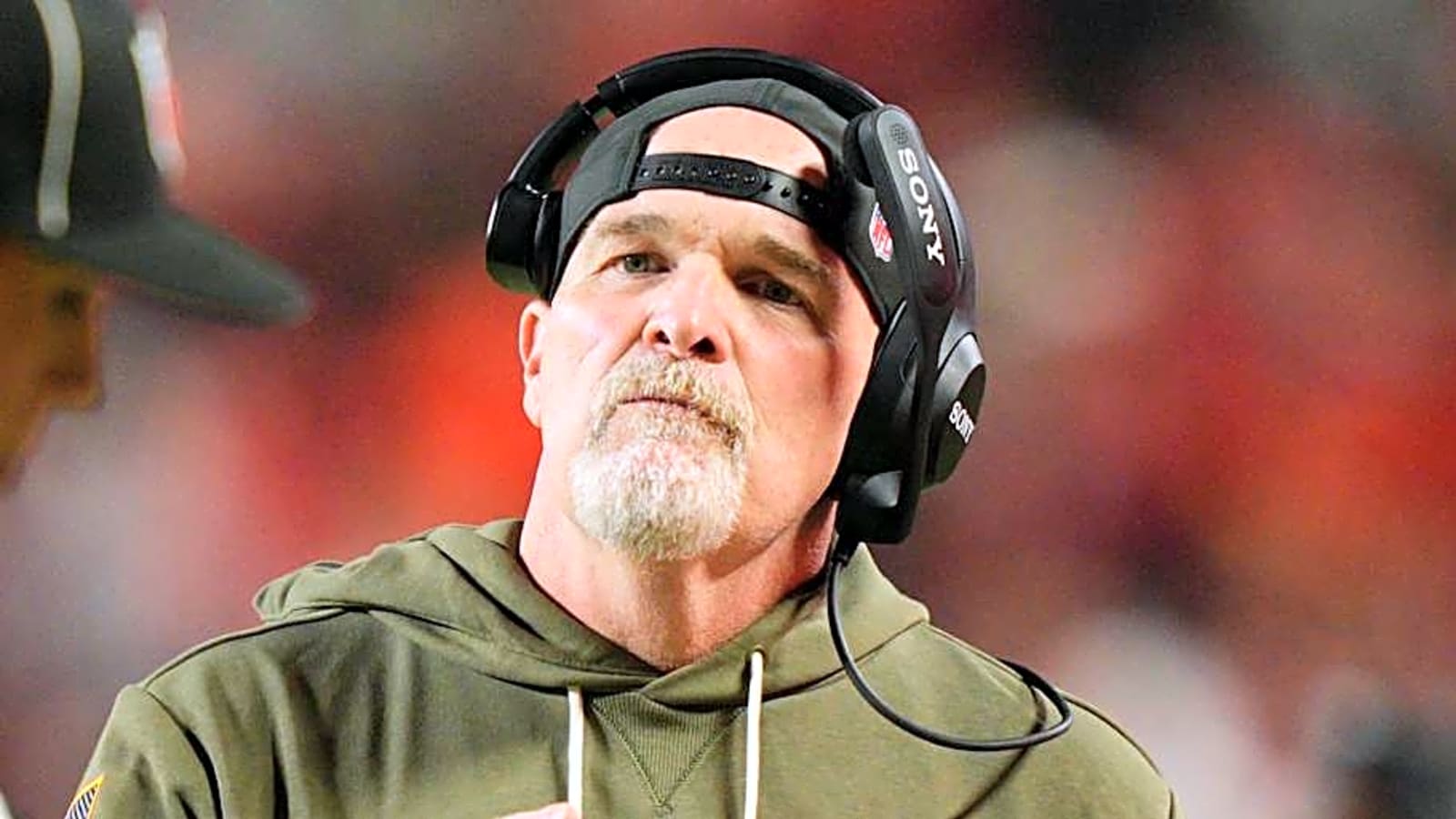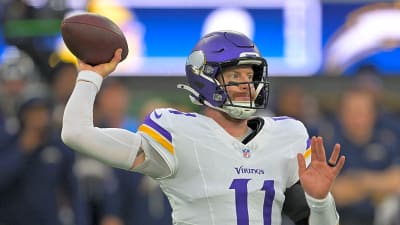
Dan Quinn promised a defensive revival against the Kansas City Chiefs. For one half, his Washington Commanders delivered.
Washington’s defense held the potent Chiefs’ offense to just seven points and came up with two takeaways. Those turnovers may have obscured the fact that Kansas City was moving the ball reasonably well. Even so, there’s no question that Joe Whitt Jr.'s unit played very well in the first half.
That all changed after the interval, when Washington’s defense looked utterly helpless. The Chiefs ran and passed at will, mounting three consecutive touchdown-scoring drives that turned a tie game into a virtual walkover.
Discounting penalties, Andy Reid’s offense ran 28 plays on those three drives. Almost half of them — 13 in all — went for eight or more yards. More than 60 percent gained at least five yards. The Chiefs had several big plays of more than 20 yards, but they mostly ripped off eight or nine yards at a time, easily marching downfield against a defense that seemed totally out of answers.
It's become an ongoing trend with no signs of getting better. That's a problem.
Commanders’ defensive woes can be attributed to injuries and poor execution
Winning in GEHA Field at Arrowhead Stadium is never easy for an opponent. Historically, Kansas City has won more than 60% of its home games. And most of those came before the Patrick Mahomes-Andy Reid era. Washington was without its star quarterback. How likely was it that they could win the game?
In addition to missing Jayden Daniels, the Commanders were without defensive ends Dorance Armstrong Jr., Deatrich Wise Jr., and Javontae Jean-Baptiste. It is the second straight game in which Quinn has sent a team onto the field missing three top players at the same position.
Against the Dallas Cowboys, it was the wide receivers. Washington lost both games by more than 20 points — its two worst regular-season losses under Quinn.
Injuries are a fact of life in the NFL, and no one accepts them as an excuse. But the one thing that is almost impossible to overcome is multiple injuries at the same position.
The Philadelphia Eagles — whether playing for Nick Sirianni or Doug Pederson — have won almost 70% of their games since 2017, with one enormous outlier. In 2020, they went 4-11-1, their only losing season in the past nine years. The reason? Several injuries across their offensive line.
But why were the Commanders able to play so well in the first half, and why did they fall apart in the second? Javon Kinlaw’s injury sapped an already depleted defensive line, but the tide had turned by the time he went out.
Perhaps there were some scheme tweaks Joe Whitt Jr. could have tried in the second half, but it might not have mattered. The simple fact is that the Commanders made great individual plays in the first half and none after the break.
Marshon Lattimore’s early interception was a magnificent effort, reminiscent of the four-time Pro Bowler's old form. Trey Amos made a similarly outstanding play on a pass just before halftime.
That sequence at the end of the first half illustrates this point. It was one of Washington’s best defensive stands of the season. How many times have we seen Mahomes set up a field goal in that situation? It seems almost a given.
Defenses are often happy that a field goal is all they surrender. With more than a minute to go at the end of a half, Mahomes is just as likely to put the ball in the end zone.
But the Commanders stood up. Excellent pressure from Kinlaw and Frankie Luvu bookended Amos's pass breakup. The half ended with the game still tied.
The Commanders failed to execute at that level in the second half. It began with a sloppy penalty on Quan Martin on a late hit. After that, the floodgates opened. They didn’t close until the game was decided.
Could Whitt have schemed his way out of this? Probably not. The Commanders do not generate pass pressure, especially now that Armstrong is out. Calling the game, Troy Aikman accurately pointed out that without a pass rush, zones are helpless against Mahomes. His ability to extend plays and find soft spots is unmatched.
The seemingly obvious solution was for Whitt to call a much more aggressive defense that blitzed Mahomes from every angle, leaving the defensive backs alone in man coverage. In hindsight, maybe the coordinator should have done more of that. But do you really believe that would have worked?
Mahomes is one of the greatest quarterbacks in NFL history against the blitz. That is true of virtually every great quarterback. Provided they have at least a competent offensive line, the all-time greats devour blitzes.
Besides, with the Commanders' mediocre individual pass-rushing talent, it is doubtful that constant blitzing would have really put Mahomes under much stress.
Staying back in zone coverage is probably all that the Commanders can manage at this point. But if that is the plan, their execution needs to be a lot better.
Zones don’t work if defenders don’t tackle. They don’t work if linebackers can’t cover, and they obviously don’t work if there are blown assignments. All of those miscues plagued Washington in the second half.
The Commanders' defensive problems stem from their roster, which lacks pass-rushing talent and now relies on veteran castoffs like Preston Smith. They derive from a scheme that relies too heavily on undersized defensive backs like Darnell Savage Jr. to make tackles. But most of all, Washington needs its cornerstone defenders — Frankie Luvu, Mike Sainristil, and Quan Martin — to play better.
You can blame coaches for not putting them in better positions. But it seems they are playing similar schemes as last year, and just not executing nearly as well.
More must-reads:
- Are Cowboys preparing to part ways with George Pickens before trade deadline?
- 49ers get needed help by trading for Patriots' Keion White
- The 'Active 140-yard, two TD catch games' quiz
Breaking News
Trending News
Customize Your Newsletter
 +
+
Get the latest news and rumors, customized to your favorite sports and teams. Emailed daily. Always free!








